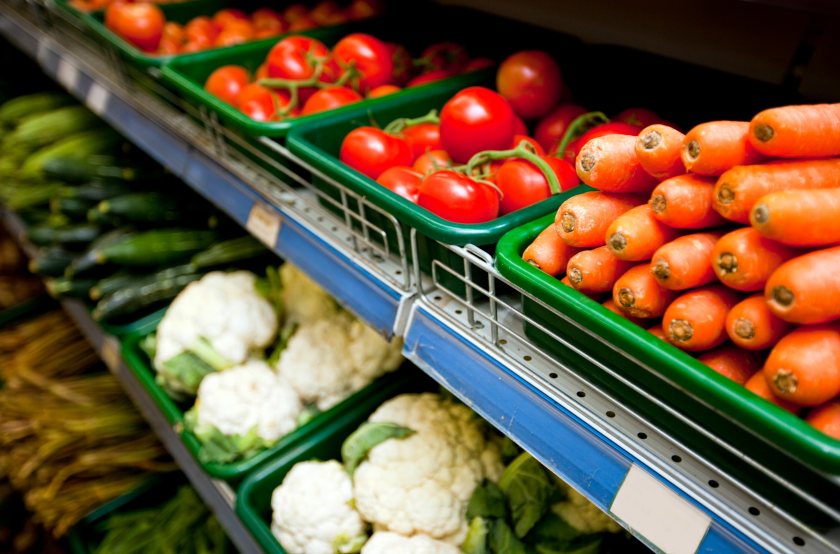
The new government has been urged to help ensure self-sufficiency doesn’t drop any further as new figures show levels for some food are at the lowest since records began.
The importance of increasing self-sufficiency levels has been highlighted today (14 August), the day which the national larder would run empty if the public only ate UK food from 1 January.
According to 2023 Defra figures, the UK is 62% self-sufficient in food. While this reflects similar levels of the past decade, some sectors have seen a recent decline.
For example, the UK’s self-sufficiency in fresh vegetables is at its lowest since records began in 1988 at 53%.
The NFU said the new Labour government must recognise the vulnerability of global food supply chains and the importance of a stable food supply in the UK.
This year, farmers have experienced one of the wettest winters and springs on record, which has put pressure on food production.
This has also contributed to a collapse in farm business confidence, causing a dramatic decline in the area planted of cereals for the 2024 harvest.
At the same time, record-breaking global temperatures have impacted key exporting countries across the world.
Imports make up 84% of fresh tomatoes on sale in the UK, yet tomato imports from Spain and Morocco fell by 17% in February 2023 compared to the five-year average.
In the same time period, imports of lettuce varieties fell by more than 36%, contributing to shortages on shop shelves as UK production also fell.
NFU President Tom Bradshaw said: “Blistering temperatures have caused issues with harvests across Europe, while here in the UK many farms spent the first few months of this year under water.
"At the same time, our farmers continue to face significant reductions in direct farm support payments and unsustainably high production costs due to the war in Ukraine.
“All of this chips away at business confidence and farmers’ ability to do what they do best – produce high quality, nutritious food for the nation.
"And with nearly a fifth of UK households reporting experiences of moderate or severe food insecurity in January 2023, we can’t afford to let this trend take hold."
The NFU has called for numerous measures for the government to undertake, such as a multi-year agriculture budget and a statutory commitment to ensure the UK’s self-sufficiency does not drop below its current level.
What else is the NFU calling for?
The union has highlighted multiple ways the new government can help ensure self-sufficiency doesn’t drop in the future:
• An increased multi-year agriculture budget for the?duration of this parliament, as was the case in the previous parliament.
• Ensure all new policies and regulations that impact agricultural and horticultural businesses undergo a food security impact assessment.
• Introduce a statutory commitment to ensure the UK’s self-sufficiency does not drop below its current level.
• Ensure food imports are produced to the same standards as those that British farmers are required to meet by introducing a system of core standards for animal welfare and environmental impact.
• A seamless transition to new environmental schemes that are open to all farmers and growers.
• Deliver manifesto commitment of introducing a target for half of all food purchased across the public sector to be locally produced or certified to higher environmental standards.
• Update the National Planning Policy Framework (NPPF) to include a weighted argument in favour of food production.
• Supporting growth in the UK horticulture sector, developing policies around access to labour, crop protection, water, planning, and affordable and sustainable energy supply.
